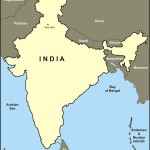There is also a requirement for a national executive-level management structure that can and will ensure continuous cooperative planning and execution of policy among and between the relevant civilian and military agencies (i.e., vertical and horizontal coordination). Such an organizational structure must also ensure that all civil-military action at the operational and tactical levels directly contributes to the achievement of the national strategic political vision.
Since the state no longer has a monopoly on instruments of violence, recourse to violence is increasingly becoming a weapon of first resort. Terrorism can be contained and its effects minimized, but it cannot be eradicated, anymore than the world can eradicate crime.
The famous anthropologist, Margaret Mead once said, “Never doubt that a small group of thoughtful, committed citizens can change the world. Indeed, it’s the only thing that ever has.” And the German philosopher Arthur Schopenhauer said, “All truth passes through three stages. First, it is ridiculed. Second, it is violently opposed. Third, it is accepted as self-evident.”
Conclusion
Operations conducted against terrorists and insurgents are designed to increase the security of citizens. Bringing down terrorism, most experts agree, is a long-term project. Its success largely depends on the Muslim world dealing with radicalism in its midst. To achieve “peace without victory” requires unusual magnanimity in a society, as the opposite of peace without victory, grammatically speaking at least, is victory without peace. What then is the way forward? One thing is certain; this war’s end is very likely to be far different from its beginning. It is a hard road ahead, and while those fighting the war may need more weaponry, they definitely need more patience.
Even though every conflict situation differs in time, place, and circumstance, none is ever truly unique. Some experts predict that Islamic extremists will lose, the way the USSR did with its ideology and tactics discredited. This will occur, they aver, as a result of the Islamic world rejecting the militants’ use of violence against other Muslims, the economic failure of extreme Islamic regimes and wariness in some Muslim nations that terrorist groups like Al Qaeda could impose their rule.
The struggle against radical terrorism and insurgency is difficult and long, but it is not one that we can afford to lose. Everyone who is concerned about the safety and security of our nation must stand up and work to educate themselves and others about the nature of extremist terrorism, and maintain public support for victory. The only way the terrorists can win is if we give up as a society and cease to defend our democratic values against the terrorists’ demands.
If you want to overcome your enemy you must match your effort against his power of resistance, which can be expressed as the product of two inseparable factors, viz. the total means at his disposal and the strength of his will. The extent of the means at his disposal is a matter ‘though not exclusively’ of figures, and should be measurable. But the strength of his will is much less easy to determine and can only be gauged approximately by the strength of the motive animating it.15 To quote Oliver Wendell Holmes again, “I find the great thing in this world is not so much where we stand, as in what direction we are moving: To reach the port of heaven, we must sail sometimes with the wind and sometimes against it, but we must sail, and not drift, nor lie at anchor”.16
Notes
- Oliver Wendell Holmes, Jr.; “The Common Law”; See http://www.jurid.net/biblio/CommonLaw/cmnlw10.htm (Accessed on 12 January 2009).
- See Martin Van Creveld, Through the Glass Darkly: Some Reflections on the Future of Warfare, Naval War College Review 53, no. 4 (Autumn 2000): 25-44; Martin Van Creveld, The Transformation of War (New York: Free Press, 1991).
- Robert Kaplan, “The Coming Anarchy,” Atlantic Monthly, February 1994, http://www.theatlantic. com/doc/199402/anarchy.
- Taber, Robert, The War of the Flea, (London, Granada Publishing Ltd., 1965) p.29.
- Carl von Clausewitz, On War, ed. and trans. Michael Howard and Peter Paret (Princeton, N.J.: Princeton University Press, 1976), pp. 579-594.
- See Marc Sageman, Understanding Terror Networks (Philadelphia: University of Pennsylvania Press, 2004), pp. 17, 95-98; Michael J. Mazarr, Unmodern Men in the Modern World: Radical Islam, Terrorism, and the War on Modernity (New York: Cambridge University Press, 2007).
- Mark Juergensmeyer, Terror in the Mind of God: The Global Rise of Religious Violence, 3rd ed. (Berkeley: University of California Press, 2003), pp. 190-193, 235.
- Sun Tzu, The Art of War, Samuel B. Griffith, trans., London: Oxford University Press, 1971, p. 63.
- Max G. Manwaring; Internal Wars: Rethinking Problem And Response; (Strategic Studies Institute, U.S. Army War College Monograph); September 2001; p.8
- Sun Tzu (1993): 165.
- Carl von Clausewitz, On War, Michael Howard and Peter Paret, ed. and trans., Princeton, NJ: Princeton University Press, 1976, p. 88.
- Ibid., pp. 88-89.
- Sun Tzu, p. 73.
- Ian Beckett, “Forward to the Past: Insurgency in Our Midst,” Harvard International Review, Summer 2001, p. 63.
- Clausewitz, On War, pp. 75, 77.
- Oliver Wendell Holme, “The Autocrat of the Breakfast Table” (1858); originally published in The Atlantic Monthly.




